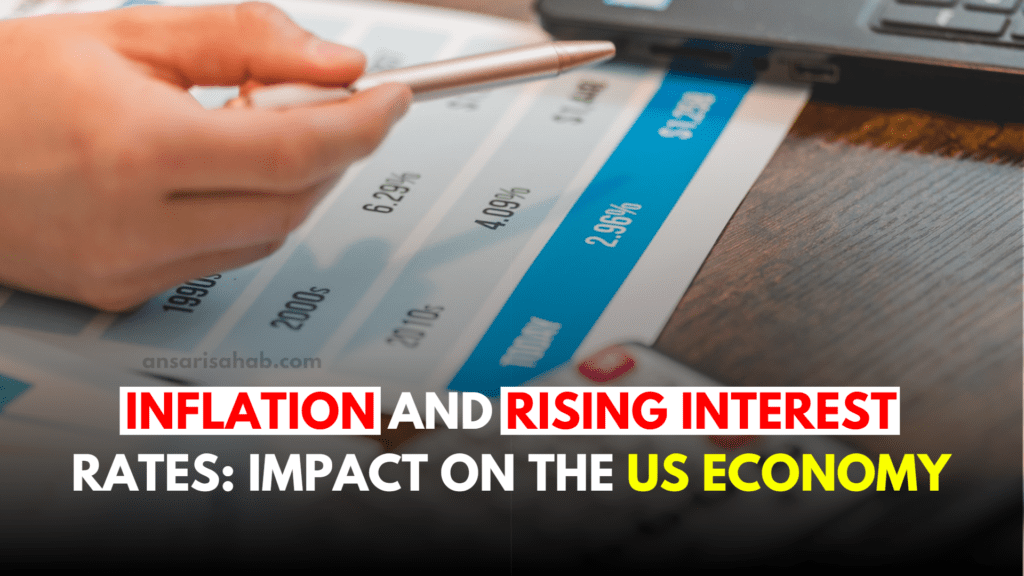Building or rebuilding credit is one of the most important steps toward long-term financial success in the United States. Whether you’re starting from scratch, recovering from past financial setbacks, or simply looking to strengthen your profile, the right credit card can make all the difference. Choosing the best credit card for building credit is not just about getting approved—it’s about selecting a tool that reports to all three major credit bureaus, offers manageable fees, provides potential rewards, and, most importantly, helps you move toward stronger financial health.
In 2025, credit card issuers have introduced more flexible options for beginners and rebuilders, including secured cards, student cards, and even fintech-backed credit builder cards that function more like debit but still report to credit agencies. These products are specifically designed to help individuals establish trust with lenders and show consistent, responsible use of credit. By using the best credit card tailored to your needs, you can demonstrate positive payment behavior, manage credit utilization, and gradually build a track record that lenders value.
When evaluating today’s credit-building options, several factors stand out:
- Reporting to credit bureaus: The best credit card for building credit must report activity to Experian, Equifax, and TransUnion.
- Fees and deposits: Many secured cards require a refundable deposit, while others come with no annual fee, making them more accessible.
- Rewards and benefits: Some beginner cards now provide cashback and perks, allowing you to build credit while earning value.
- Upgrade paths: A good credit builder card should offer the possibility to graduate to an unsecured card after consistent responsible use.
In this blog, we’ll explore the top options available in the U.S. as of August 2025 to help you choose the best credit card for your financial journey. With the right choice and consistent use, you can take control of your credit and unlock better financial opportunities in the months ahead.
Section 1: Why the Right Card Matters for Building Credit
When it comes to building or rebuilding your financial reputation, choosing the best credit card plays a crucial role. A carefully selected card does more than give you access to spending power—it becomes a tool to demonstrate financial responsibility and build trust with lenders. The way you use your credit card directly impacts your credit profile, and the right one ensures that every positive action you take is reflected in your score.
The best credit card for building credit works in several ways:
Establishing On-Time Payments
Payment history is the single most important factor in determining your credit score. By consistently paying your balance on time, you show lenders that you can be trusted with borrowed money. Even one late payment can negatively affect your score, so having a card that makes it easy to track due dates and set up automatic payments is essential.
Improving Your Credit Mix
Credit scoring models reward consumers who manage different types of credit responsibly. While loans and mortgages may not be accessible to everyone at first, using the best credit card helps diversify your credit mix early. Having a revolving line of credit shows that you can handle different forms of borrowing, which strengthens your overall financial profile.
Demonstrating Responsible Credit Behavior
Beyond payments, how you use your available credit also matters. Keeping balances low relative to your credit limit—ideally under 30%—shows that you don’t rely heavily on credit and can manage your finances wisely. A good starter card, especially one designed for credit building, encourages this responsible usage by offering reasonable limits and transparent terms.
Aligning with Modern Credit Scoring Trends
As of 2025, credit scoring models are evolving. The latest VantageScore 5.0 gives greater importance to 24-month credit trends rather than just isolated actions. This means that consistently using the best credit card over a period of months can have a compounding positive effect. Your long-term behavior—like making steady payments and keeping balances in check—is now weighed more heavily, giving responsible cardholders a real chance to accelerate their credit-building journey.
In short, the right credit card is more than plastic—it’s a stepping stone to financial growth. By choosing the best credit card tailored to your needs, you create a foundation for stronger credit health and open the door to future financial opportunities, from auto loans and mortgages to premium rewards cards.
Section 2: Key Features to Look for in the Best Credit Card for Building Credit
Not all credit cards are created equal—especially when your goal is to build or rebuild credit. To make the most impact on your financial journey, you’ll want to choose the best credit card that aligns with your needs and maximizes your chances of success. Here are the key features to consider when evaluating which card is right for you:
1. Reports to All Three Major Credit Bureaus
The primary purpose of a credit-building card is to ensure your responsible usage is reported. The best credit card for this purpose should report activity to Experian, Equifax, and TransUnion every month. If a card doesn’t report to all three, your efforts to improve your credit score may not show up everywhere lenders look.
2. Low or No Annual Fees
Many starter cards come with fees that can eat into your budget. A truly best credit card for building credit should offer low or no annual fees, keeping the cost of ownership manageable. Since your focus is on building positive habits, avoiding unnecessary expenses helps you stay financially stable.
3. Reasonable Interest Rates (APR)
While paying in full each month should always be the goal, it’s important to look at the interest rate. The best credit card will have a relatively lower APR compared to other starter options. This ensures that if you do carry a balance, you won’t be overwhelmed by interest charges.
4. Deposit Requirements for Secured Cards
If you’re starting with no credit history or trying to rebuild after setbacks, a secured credit card might be your best option. These require a refundable security deposit, which typically becomes your credit limit. The best credit card in this category will have flexible deposit amounts, starting as low as $200, and offer a clear path to upgrade to an unsecured card once you’ve proven responsible use.
5. Rewards and Perks for Beginners
Some modern credit-building cards now come with cashback or points, even for those with limited credit history. While rewards aren’t the main priority, having a best credit card that offers 1%–2% cashback can make building credit more rewarding without additional costs.
6. Upgrade Paths
A strong credit card issuer will allow you to graduate from a secured or student card to a regular unsecured rewards card after 6–12 months of responsible use. The best credit card will come with this upgrade path, saving you from the hassle of closing accounts and losing credit history.
7. Digital Tools and Mobile Access
In today’s world, managing your finances on the go is crucial. The best credit card for building credit should provide an easy-to-use mobile app, spending alerts, and free credit score tracking. These tools help you stay on top of your financial health while ensuring you never miss a payment.
👉 By keeping these features in mind, you’ll not only choose the best credit card but also set yourself up for long-term financial success. The right card should work with you—not against you—as you build the habits that lenders value most.
Section 3: Best Credit Cards for Building Credit in 2025 (Updated List with Features & Benefits)
Choosing the best credit card for building credit is easier when you know which cards are specifically designed to help beginners and rebuilders succeed. Here’s a curated list of top-performing cards in the U.S. as of August 2025, including both secured and unsecured options.
1. Discover it® Secured Credit Card
- Type: Secured
- Annual Fee: $0
- Deposit Requirement: $200 minimum
- Rewards: 2% cashback at gas stations & restaurants, 1% on all other purchases; cashback matched first year
- Why it’s great: Reports to all three major credit bureaus, offers strong rewards even for beginners, and has a clear upgrade path to an unsecured card.
2. Capital One Platinum Secured Credit Card
- Type: Secured
- Annual Fee: $0
- Deposit Requirement: $49–$200 based on creditworthiness
- Rewards: None, focus on credit building
- Why it’s great: Offers automatic credit line reviews for potential increases after six months of responsible use. A strong choice for building or rebuilding credit.
3. Chime Credit Builder Secured Visa Card
- Type: Secured (no credit check)
- Annual Fee: $0
- Deposit Requirement: Flexible, based on your Chime account balance
- Rewards: None
- Why it’s great: No credit check required, reports to all bureaus, and designed for absolute beginners. Ideal for those starting with zero credit.
4. Self Visa Credit Card (Self Inc.)
- Type: Secured via Credit Builder Account
- Annual Fee: $25–$50
- Deposit Requirement: Linked to your Credit Builder Account
- Rewards: None
- Why it’s great: Combines savings and credit building, reports to all three bureaus, and allows you to build credit while saving money.
5. Discover it® Student Cash Back Credit Card
- Type: Unsecured (student-focused)
- Annual Fee: $0
- Deposit Requirement: None
- Rewards: 5% cashback on rotating categories, 1% on all other purchases; cashback doubled first year
- Why it’s great: Perfect for college students, reports to all bureaus, and builds credit responsibly while earning rewards.
6. Capital One QuicksilverOne Cash Rewards Card
- Type: Unsecured
- Annual Fee: $39
- Deposit Requirement: None
- Rewards: 1.5% cashback on all purchases
- Why it’s great: Designed for individuals with fair credit, helps improve credit with consistent use, and comes with helpful tools for tracking credit growth.
7. Chase Freedom Rise Credit Card
- Type: Unsecured
- Annual Fee: $0
- Deposit Requirement: None
- Rewards: 1.5% cashback on all purchases, $25 statement credit for enrolling in autopay
- Why it’s great: Beginner-friendly, no annual fee, and encourages responsible credit habits while providing small rewards.
These options represent some of the best credit cards available in 2025 for building or rebuilding credit in the U.S. Whether you prefer a secured card to start safely or an unsecured student card for rewards, selecting the right card and using it responsibly is key to establishing strong credit habits.
Section 4: Tips to Maximize Your Credit-Building Potential with the Best Credit Card
Getting approved for a credit-building card is only the first step. To truly leverage the best credit card for building credit, you need a strategy that maximizes your positive impact on your credit profile. Here’s how to make the most of your new card:
1. Make Timely Payments Every Month
Payment history is the single most important factor in credit scoring. Consistently paying your balance on time shows lenders that you are responsible, which helps improve your credit score faster. Set up autopay or calendar reminders to avoid late payments. Using the best credit card responsibly ensures every payment counts toward building strong credit habits.
2. Keep Your Credit Utilization Low
Credit utilization—the ratio of your balance to your credit limit—is a major factor in scoring models like VantageScore 5.0. Aim to use less than 30% of your available credit, and ideally keep it around 10–20% for faster results. Even small charges paid off in full each month demonstrate responsible usage of your best credit card.
3. Monitor Your Credit Regularly
Tracking your progress helps you understand what’s working and what needs adjustment. Use free tools and apps provided by your card issuer or third-party services to check your score monthly. Monitoring ensures your use of the best credit card contributes positively to your credit-building goals and helps catch any errors early.
4. Avoid Opening Too Many New Accounts
While it might be tempting to apply for multiple cards, each new hard inquiry can temporarily lower your credit score. Focus on using your chosen best credit card responsibly before considering additional accounts. Quality and consistent usage matter more than quantity when building credit.
5. Take Advantage of Upgrade Opportunities
Many secured cards and student cards allow you to transition to an unsecured credit card after demonstrating responsible use. This upgrade can increase your credit limit and reduce reliance on security deposits, enhancing your credit profile. Using the best credit card strategically for upgrades accelerates your path to better financial opportunities.
6. Use Rewards Wisely
If your best credit card offers cashback or points, take advantage of these benefits, but avoid overspending to earn rewards. Responsible use of rewards programs shows lenders that you can manage credit responsibly while gaining added value.
By following these tips consistently, you can maximize the benefits of your best credit card and build a strong credit foundation within months. Responsible use, strategic spending, and regular monitoring will not only improve your score but also open doors to higher credit limits, better loans, and financial freedom.
Section 5: Common Mistakes to Avoid When Using a Credit-Building Card
Even with the best credit card in hand, certain mistakes can slow or even reverse your progress. Avoiding these common pitfalls ensures that your efforts to build credit are effective and sustainable.
1. Missing Payments
Late or missed payments can significantly damage your credit score. Even one late payment reported to the bureaus can take months to recover from. Always set up autopay or reminders to ensure you never miss a due date. Consistent, on-time payments are the fastest way to build a strong credit history.
2. Maxing Out Your Card
Carrying high balances relative to your credit limit increases your credit utilization ratio, which can negatively affect your score. To maintain a healthy profile, aim to keep your usage below 30% of your available credit. Even small, manageable balances paid off in full each month can demonstrate responsible credit management.
3. Applying for Too Many Cards at Once
Each new credit application triggers a hard inquiry, which can temporarily lower your score. Opening multiple cards in a short period can also signal financial instability to lenders. Focus on using your current credit-building card effectively before applying for additional accounts.
4. Closing Old Accounts Prematurely
The age of your credit accounts contributes to your credit history. Closing older accounts too soon can shorten your credit history and reduce your score. Keep accounts open, even if you use them infrequently, to maintain a strong credit record.
5. Neglecting to Monitor Your Credit
Failing to track your progress can let errors or issues go unnoticed. Regularly review your credit report to ensure all information is accurate and that your payments are being reported correctly. Monitoring helps you make informed decisions and adjust strategies when necessary.
By avoiding these common mistakes, you can use your credit-building card more effectively and see steady improvement in your credit score over time. Responsible habits combined with the right card set the foundation for long-term financial success.
Section 6: Conclusion
Building a strong credit profile takes time, discipline, and the right tools. Choosing the right credit-building card is the first step, but consistent use and responsible habits are what truly drive improvement. By making on-time payments, keeping balances low, monitoring your credit regularly, and avoiding common mistakes, you can see meaningful progress within months.
The best credit cards for building credit in 2025 offer a combination of reporting to all major credit bureaus, low fees, rewards for responsible use, and upgrade paths to unsecured cards. Using these cards wisely allows you to demonstrate financial responsibility, diversify your credit mix, and establish a positive credit history that lenders respect.
Remember, building credit is a marathon, not a sprint. Patience and consistency are key. With the right approach and a well-chosen credit card, you can improve your financial health, unlock better loan opportunities, and pave the way for a stronger financial future.









